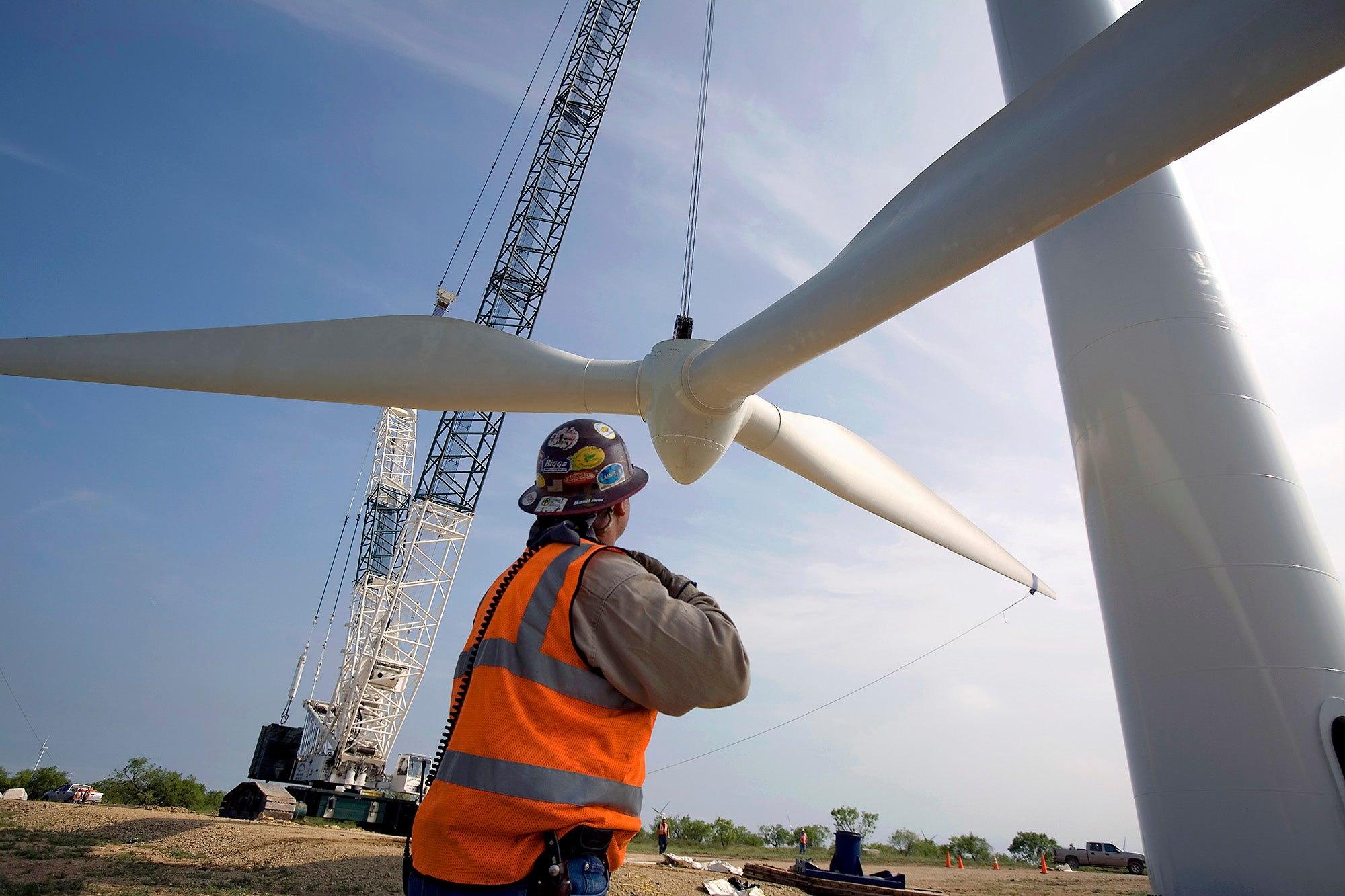Earthjustice goes to court for our planet.
We’re here because the earth needs a good lawyer.
We’re Defending the People’s Environmental Law in Court from Partisan Attacks
This page was published a year ago. Find the latest on Earthjustice’s work.
What happened: The Biden administration has revitalized the National Environmental Policy Act (NEPA), also known as the people’s environmental law. The updates will ensure that critical infrastructure needed for the clean energy transition is built quickly, equitably, and is resilient to climate change.
The new updates reverse the Trump administration’s severe rollbacks of this bedrock law that favored polluting industries and restricted the public’s input on projects that could harm their health and livelihoods.
But a lawsuit filed by 21 Republican state attorneys-general aims to block the updated regulations that ensure federal decisions get input from communities, Tribes, and climate change scientists. We’re intervening in the lawsuit to defend NEPA and ensure that federal agencies consider the impacts of environmental justice and climate when approving large projects.
Why it matters: We need to rapidly build out our clean energy future in an equitable and efficient way. The Biden administration’s new updates to NEPA provide the framework we need to do this by improving the permitting process, incorporating climate concerns, and considering environmental justice impacts on communities.
Here’s what to know.
Restoring NEPA to its full strength
- First – what is NEPA? The National Environmental Policy Act requires the federal government to review the health, economic, and environmental impacts of its decisions and disclose those impacts to the public. Most importantly, it is often the only opportunity local communities have to weigh in on major, potentially disruptive projects, like highways or a toxic waste incinerator.
- The Biden administration reversed some of the worst impacts of former President Trump’s changes to NEPA. In 2020, former President Trump gutted NEPA by undermining the scope of the law’s applicability. This included limiting public participation and curtailing the ability of federal agencies to consider the climate and cumulative environmental impacts of major projects.
- The new rule will accelerate project permitting and modernize NEPA to meet the challenges of the climate crisis, environmental injustice, and biodiversity loss. The Biden administration’s updates strengthen community participation and affirm the responsibility of federal agencies to consider climate change, health, and environmental impacts when making project decisions. The changes apply to over 80 agencies in the federal government.
NEPA gives people a voice in our clean energy future
- NEPA recognizes that the concerns and voices of impacted communities are not ‘red tape’ to discard. When done correctly, a good NEPA analysis results in durable, more resilient projects. If communities are engaged from the start, it lessens the likelihood of conflict and costly litigation later.
- NEPA is the bridge, not the barrier, to our clean energy future. At a time when we need to rapidly build out clean energy infrastructure, NEPA can ensure that the environmental injustices of the past aren’t repeated, sacrificing marginalized communities for the sake of reckless “growth.”
- Open, transparent decisions: NEPA review is often the only way for people to learn about projects proposed in their communities. Without strong NEPA rules, communities and their clean air and water suffer from old-school backroom deals that don’t value workers and local human health experts. The best projects know the benefit of community input and don’t hide from it.
We’re fighting back against those challenging the improved, life-saving standards
- Partisan state attorneys general rushed to court: Mere weeks after the Biden administration finalized the new standards, 21 state attorneys general filed suit, seeking to block the new standards from taking effect. The lawsuit specifically denounces new requirements that agencies consider the environmental justice and climate impacts of projects as well as the incorporation of Indigenous knowledge into reviews.
- Strength in numbers: We’re representing a diverse coalition of environmental justice, labor, and conservation groups to support the new standards. Federal agencies must consider climate and environmental justice impacts in their NEPA analyses and mandate meaningful, early consultation with impacted communities, including Tribes.
